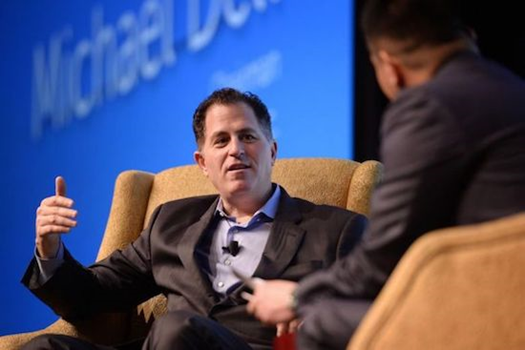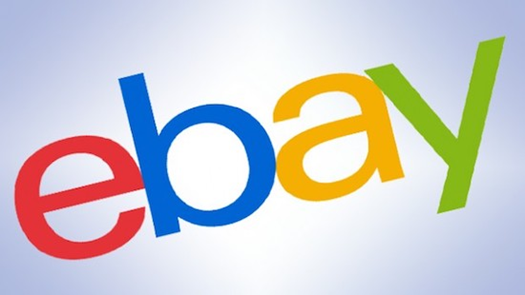|
Forum
reference:
New
venture giving "voice" to "everyday investors"
|
|
For a news report of the project announced below, and of the referenced
video presentation of Say's advisor, see
For press announcements of the project and of the venture's initiation, see
|
|
Source: :
Say, January 25, 2019 newsletter |
What Went Down at Davos 2019?
|
|

Davos, the World Economic Forum’s annual unforgettable
senior year Swiss Alps ski trip for the world’s
political and financial leaders, is wrapping up today.
Some highlights from the week:
Who didn’t go: Donald Trump, who is doing
this, and the rest of what would have been his
delegation, Theresa May, who’s coming up with a plan B
for Brexit and Emmanuel Macron, who is trying to respond
to France’s “Yellow Vests” protests. Justin Trudeau
skipped because it was revealed his trip last year cost
Canadian taxpayers $700,000.
Who did go: Apple CEO Tim Cook,
Microsoft CEO Satya Nadella, and Brazil’s newly elected
far-right president Jair Bolsonaro were all there and had
dinner together. The internet took
note.
What else happened? Sheryl Sandberg
said that Mark Zuckerberg should
remain Facebook's chair and CEO, despite the
company’s seemingly endless backslide into “That Wasn’t
a Great Way to Handle That Problem” Canyon. Fellow employees
apparently agree. Regardless,
a proposal to break up his roles as Chair and CEO
will be voted on at Facebook’s upcoming shareholder’s
meeting.
Anything else? Michael Dell laughed during
a panel conversation when asked about New York
Congresswoman’s Alexandria Ocasio Cortez’s proposal
that the world’s billionaires pay 70% tax rates to
grow the economy. Dell, who is worth $30 billion,
responded “name a country where that’s worked—ever,” to
which fellow panelist Erik Brynjalfsson, director of
MIT’s Initiative on the Digital Economy, quipped
“the United States,” pointing out that the top
marginal tax rate in the US was over 90 percent during
World War II and 70% in the ‘60s, into the ‘80s. “Those
were actually pretty good years for growth,” Brynjalfsson
said. |
|
|
“Now true, the people might have to pay a little bit
of interest, but the idea that it’s paycheck or zero is
not a really valid idea.”
Commerce Secretary Wilbur Ross on
not understanding why Federal Employees might not
have the ability to take out a loan or need to turn to
Food Banks during the Government Shutdown, which
reopened for three weeks today. |
|
More People Want CEOs To Fix Society’s Problems
|
|
|
Hot on the heels of Larry Fink’s call to CEOs to link
purpose and profit, Edelman has released
its annual “Trust Barometer" report.
Its findings: 76% of people think CEOs
and corporate executives should “take the lead on change
instead of waiting for government to impose it,” using
their company policies to address issues of pay
inequality, discrimination and the environment.
The report, per Axios, recommends that
CEOs can show their commitment to addressing social and
environmental issues by helping to solve problems in the
communities they operate out of, by empowering employees
to have more of a voice in how the companies they work
for operate, and by giving to philanthropic causes that
also address these issues.
More shareholders and employees are aligning in
the tech world: In November, Google employees
staged a public walk-out over its handling of sexual
harassment cases, pushing the company to end forced
arbitration for such cases. It did not respond to
walk-out organizers' demands
to put an employee representative on its board.
Contracted workers, which now account for half
of Google’s workforce, are now
publicly calling for better benefits and similar
board representation. Google is also
being sued by shareholders over its sexual
harassment policies.
In November, Amazon told employees who voiced public
outcry about its facial recognition software and its
potential to infringe on civil liberties that it would
proceed with selling it to law enforcement. A
proposal
to more thoroughly review the software’s capabilities
will now be voted on at its next shareholder meeting. |
|
Say Co-Founder Alex Lebow took to the airwaves on the
Council of Institutional Investors weekly podcast to
discuss the disruption of financial infrastructure
-- including the debate in Washington over the
regulation of proxy advisory firms and shareholder
proposals -- and whether blockchain has a role in
improving shareholder voting.
Listen here.
|
|
Two Activist Hedge Funds Zero-In on eBay
|
|
|

Fresh from telling Pernod Ricard to
stop being so French, hedge fund Elliott Management
is back to give eBay some business advice, revealing it
has more than a 4% stake in the company.
Wanted: A totally different business model: Activist
investors Starboard have announced stake in the company
too and a similar vision for the e-commerce site as
Elliott. Though they’re working separately, Elliott
wants eBay to sell or spin off their StubHub ticketing
and classified-ads businesses, saying they could be
worth more on their own and eBay should focus on its
core marketplace.
In recent years, eBay has tried to break out of its
image as an online auction house and
purveyor of half-eaten Brachs to compete with Amazon
and its third-party business sales. It now touts that
80% of the items for sale on its site are new. Investors
and consumers have mostly been kind of “oh” about that,
though, and shares have languished. eBay’s stock is down
17% this year.
But Also, PayPal: In 2015, Carl Icahn
led a similar campaign for eBay to spin off PayPal,
which was successful and doubled PayPal’s shares. But,
as some
have pointed out, PayPal was and is a way bigger
company than StubHub. Also, that was four years ago,
which is about 150 years in Internet Time. Back in 2015,
Amazon was just a little hundred-billion dollar one-stop
shop. To compete with the trillion-dollar e-commerce
monolith now might be tougher than Elliott and Starboard
realize. |
|
"Sorry I Forgot Your Birthday I Stopped Checking
Facebook." [ WSJ] |
|
190K
The
amount of dollars raised for Fyre Festival caterer
MaryAnne Rolle on GoFundMe. Rolle sunk her savings of
$50,000 into the doomed festival, which the organizers
never paid back.
|
|
0
The number of Sweetheart "conversation" hearts on
shelves this Valentine's Day.
The company that makes them went out of business last
year. (They'll return under a different producer in
2020.)
|
45.6
The percentage of S&P 500 companies with CEOs who also
serve as chairperson. That's
down from 48.7% the year before and is the lowest
percentage in 10 years.
|
|
Companies’ Compostable Items Might Not Be Fixing Much
|
|
|

Companies like Nestle, Pepsi and UniLever have replaced ocean
and landfill-clogging plastic with more eco-friendly
compostable products in recent years that break down
over time.
That’s great, except: Compostable
products only decompose if they’re actually composted.
Per the Wall Street Journal:
“[Compostable products] need high heat and moisture,
conditions found mainly in special industrial
facilities. Inadequate labeling and a lack of
infrastructure mean many of these products end up in
regular trash bins, industry executives say. Compostable
products are then burned or sent to landfills,
where—deprived of oxygen and microorganisms—they don’t
degrade.”
One problem: Many people are confused
about how composting works or where they would even do
it. New York City recently halted a household composting
pilot program because
only 11% of organic garbage was actually put in the
brown composting bins given out by the city.
Meanwhile: Bloomberg
reported this week that some companies are looking
for ways to profit from global warming.
7,000 companies worldwide (including 1,800 in the U.S.)
responded to a survey by UK corporate social
responsibility non-profit CDP,
asking companies how they plan on preparing for climate
change.
Though many companies are taking legitimate steps to
consider their impact on the environment, the survey
offered some disturbing forward thinking.
Per Earther:
"Pharmaceutical giant Merck is planning on an
expanding market for cures to “tropical and
weather-related diseases including waterborne illness.”
Google sees rising weather damages as an “opportunity
driver could have a positive impact on our brands” like
Google Earth. Home Depot is looking forward to selling
more air conditioners thanks to more intense heat waves."
You can read additional highlights from the report on
Axios.
Want companies to listen to you?

You can now submit proposals to the companies you own
through Say.
Your proposals will be featured on our app allowing verified
shareholders to weigh in on the suggestions of fellow
everyday investors.
|
|
|
|
|
|
|





